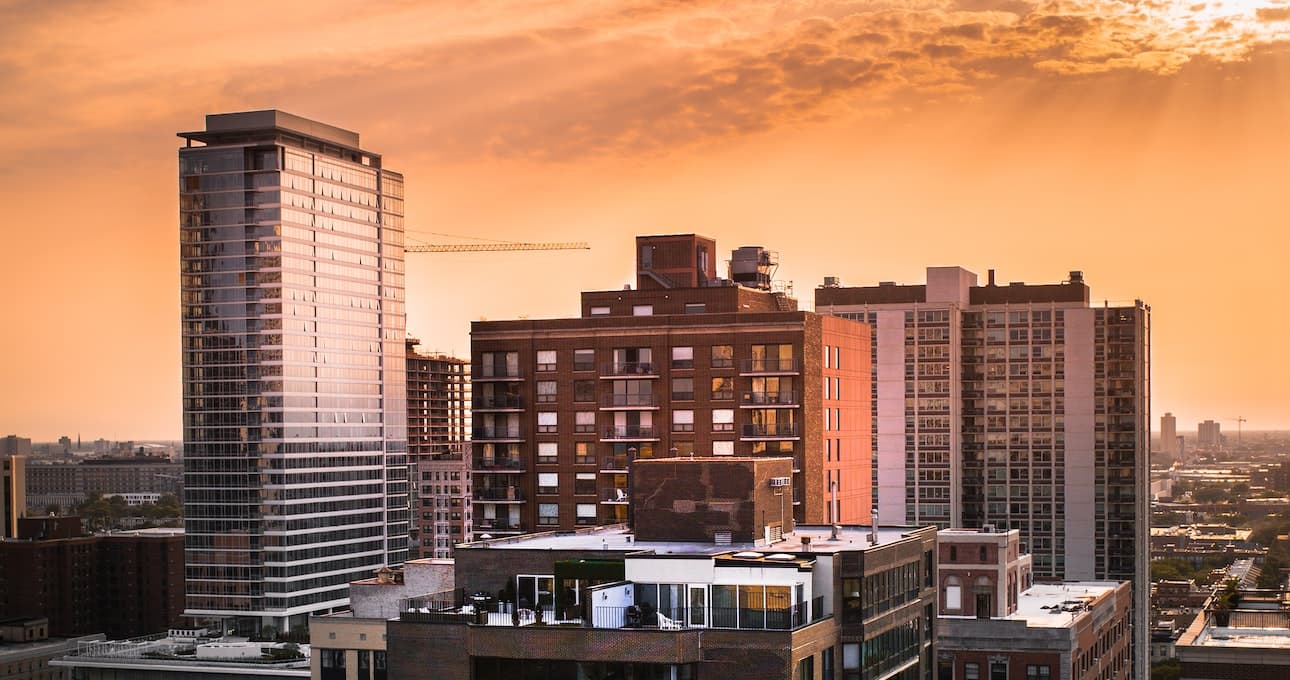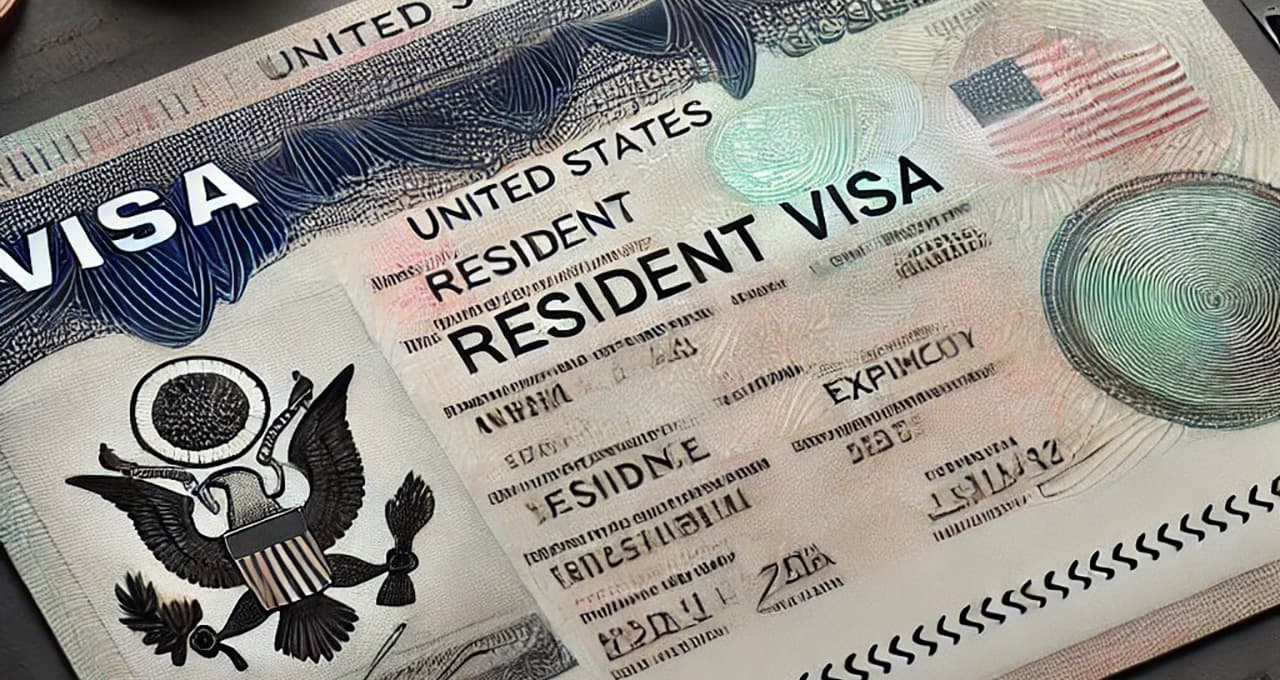- info@colombialawconnection.com
- +57 321 864 2275
Colombia offers a residence visa for foreigners looking to establish themselves permanently in the country. Whether you're planning to retire, invest, or work, this visa allows you to live and work in Colombia indefinitely, with access to benefits like healthcare and education. Applicants must meet specific requirements, such as financial stability, investment, or family ties, and complete the necessary documentation and background checks.
At Colombia Law Connection, we simplify the process, ensuring a smooth and hassle-free application. On this page, you'll find information about different types of Resident Visas available, requirements, and duration to help you take the next step toward making Colombia your new home.
What is the Resident Visa
The Resident visa in Colombia is designed for foreigners who wish to establish permanent residency in the country. It goes a step beyond the Migrant (Type M) visa, offering greater stability for those committed to living in Colombia long-term. While this visa does not grant citizenship, it allows holders to live, work, and access essential services indefinitely. This makes it an excellent option for those looking to retire, invest, or settle permanently in Colombia.
The Colombia resident visa is valid for five years and can be renewed upon expiration. Additionally, after maintaining the Type R visa for a certain period (previously five years as of 2021), holders become eligible to apply for Colombian citizenship. This visa is an important step for those looking to fully integrate into the country and enjoy the benefits of Colombia residency, including access to healthcare, education, and a strong legal status.
Path to Eligibility
There are several ways to qualify for a Colombia residence visa, depending on your circumstances and long-term plans in the country. This visa is ideal for individuals who seek permanent residency and greater stability in Colombia. The most common paths to eligibility include:
- Holding a Type M visa for a specific number of years (typically five years), allowing temporary residents to transition to permanent status.
- Being a parent or child of a Colombian citizen, granting the right to apply for residency based on family ties.
- Making a significant investment in Colombian property or a business, meeting the minimum financial threshold established by the government.
Each path has specific requirements and documentation, making it necessary to understand the process before applying. Colombia Law Connection is here to assist you in navigating the eligibility criteria and securing your Colombia residence visa efficiently.
Benefits
Obtaining a Colombia residence visa comes with numerous advantages, offering long-term stability and flexibility for those who wish to establish a permanent life in the country. Some key benefits include:
- Freedom to work and engage in any legal activity within Colombia without restrictions.
- Unrestricted travel in and out of Colombia without jeopardizing visa status. However, prolonged absences may impact the path to citizenship.
- Ability to bring dependents, such as a spouse or children, allowing your family to reside in Colombia under the same visa benefits.
Continuous Stay Requirement
One significant distinction between the Type M visa and the Type R visa is the requirement for continuous stay. With a Colombia residence visa, the holder must not remain outside of Colombia for more than two consecutive years, or the visa may be revoked.
If you are considering applying for a Type R visa or transitioning from another visa category, it is necessary to seek guidance from Colombia Law Connection or review the latest regulations from the Colombian Ministry of Foreign Affairs to ensure compliance with current requirements.
Who Qualifies for a Colombia Residence Visa?
The Colombia residence visa (Type R) is designed for individuals seeking permanent residency in the country. It provides long-term stability and eliminates the need for frequent visa renewals. Below are the typical applicants who may qualify for a Type R visa:
- Long-Term Residents: Individuals who have lived in Colombia on a Type M (Migrant) visa for the required duration and wish to transition to permanent residency.
- Family Connections: Spouses, parents, or children of Colombian citizens who want to establish a permanent life in Colombia.
- Investors: Those who have made significant investments in Colombia, such as real estate or businesses, meeting the government's financial thresholds.
- Retirees: Foreigners looking to retire in Colombia due to its low cost of living, climate, and quality of life, securing long-term residency without visa renewals.
- Entrepreneurs: Business owners who have established companies in Colombia and wish to live and operate their enterprises permanently.
- Former Colombian Citizens: Individuals who previously held Colombian citizenship but renounced it (e.g., for naturalization elsewhere) and wish to return and reside in Colombia.
- Professionals with Stable Employment: Those with long-term jobs in Colombia who see their future in the country and want to secure permanent residency.
- Individuals on a Path to Citizenship: Foreign nationals aiming to acquire Colombian citizenship, as holding a Colombia resident visa for a specified period is often a prerequisite for naturalization.
Applying for a Type R visa is a significant step toward building a stable life in Colombia, South America. If you're considering this option, Colombia Law Connection can provide expert guidance to ensure a successful application process.
Colombia Residence Visa Requirements by Category
The Colombia residence visa (Type R) includes multiple categories, each with specific eligibility criteria and documentation requirements. Below is a general breakdown of the primary categories, but keep in mind that requirements may change over time. It's always best to check with the Colombian Ministry of Foreign Affairs or consult an immigration expert to ensure you meet the latest regulations.
Long-term Residents (Transitioning from Type M visa):
- Proof of uninterrupted stay in Colombia with a Type M visa for the stipulated period, usually around five years.
- Passport with a minimum validity of 18 months.
- Passport-sized photographs.
- Criminal background check, if required.
Family Connections (Marriage, Permanent Partnership, Parent or Child of a Colombian):
- Proof of the relationship: For marriage, a marriage certificate; for partnerships, evidence of the partnership; and for parents/children, birth certificates.
- Passport with a minimum validity of 18 months.
- Passport-sized photographs.
- If required, a criminal background check from the country of residence.
Investors:
- Documentation proving the investment, such as property deeds, business registration, and related financial records.
- Proof that the investment meets the minimum threshold set by the government.
- Passport with a minimum validity of 18 months.
- Passport-sized photographs.
- If required, a criminal background check.
Retirees:
- Proof of retirement, such as a pension statement or related official documentation.
- Documentation showing the pension or retirement income meets the minimum threshold set by the government.
- Passport with a minimum validity of 18 months.
- Passport-sized photographs.
- If required, a criminal background check.
Entrepreneurs:
- Business registration and related financial records proving the establishment and operation of a business in Colombia.
- Passport with a minimum validity of 18 months.
- Passport-sized photographs.
- If required, a criminal background check.
Former Colombian Citizens:
- Proof of former Colombian citizenship, such as an old Colombian passport or other official documentation.
- Passport with a minimum validity of 18 months.
- Passport-sized photographs.
Professionals with Stable Employment:
- Employment contract or related documentation proving stable, long-term employment in Colombia.
- Passport with a minimum validity of 18 months.
- Passport-sized photographs.
- If required, a criminal background check.
How long does it take to apply for the Resident Visa?
The Colombia residence visa (Type R) processing time varies based on several factors, including the applicant's specific circumstances, the accuracy of the submitted documents, and the workload of the Colombian consulate or embassy handling the application.
On average, processing can take anywhere from a few weeks to several months. To ensure a smooth application process, applicants should:
- Check Current Processing Times: Visit the Colombian Ministry of Foreign Affairs website or contact the nearest Colombian consulate or embassy for the latest updates.
- Ensure Complete and Accurate Documentation: Submitting all required documents correctly can help avoid unnecessary delays.
- Consider External Factors: Holidays in both Colombia and the applicant's country, as well as global events, may impact processing times.
To prevent delays, applicants should plan their Colombia residence visa application well in advance of their intended move. Staying in touch with the consulate or embassy and monitoring the application status regularly can also help ensure a timely approval.
Step-by-Step Process for Applying for a Colombia Residence Visa
Applying for a Colombia residence visa (Type R) requires following a structured process to ensure a smooth and successful application. This visa is designed for individuals who have held a temporary or migrant visa, have Colombian family ties, or meet other eligibility criteria set by the Colombian government. Below is a general guide to the application process:
1. Determine Eligibility
To apply for a Colombia residence visa (Type R), applicants must meet specific criteria. Eligibility is typically based on having held a Type M (Migrant) visa for a certain period (usually 2-5 years), having Colombian family ties (such as being a parent of a Colombian national), or making a significant investment in real estate or business that meets the government's financial requirements.
Since visa regulations may change, check the latest requirements on the Colombian Ministry of Foreign Affairs website or consult with an immigration expert to ensure compliance.
2. Gather Required Documents
Applicants must provide documents such as a valid passport, previous Colombian visa copies, and proof of economic stability or investment. Those applying through family ties need to present a marriage certificate, birth certificate, or other official documentation.
Additionally, some categories require financial statements to prove economic solvency and health insurance to cover medical needs in Colombia. Ensuring all documents are translated and apostilled (if necessary) helps avoid processing delays.
3. Complete the Online Application
The Colombia residence visa application is submitted online via the Colombian Ministry of Foreign Affairs website (Cancillería portal). Applicants must fill out the required forms and upload scanned copies of all necessary documents.
Double-check all submitted information to avoid delays or rejections. Any missing or incorrect details can result in extended processing times or additional document requests.
4. Pay Visa Fees
Visa fees vary depending on the applicant's nationality and visa type. The payment process is typically done online through the official Colombian government portal or at an authorized consulate.
Since fees may change, applicants should verify the current costs on the Colombian Ministry of Foreign Affairs website before proceeding with the payment. Keeping a receipt of the transaction is recommended.
5. Visa Application Review
Once submitted, the Colombia residence visa application goes through a review process. The approval timeline depends on various factors, including government workload, completeness of documents, and applicant background checks.
Processing can take anywhere from a few weeks to several months, so applicants should plan accordingly and monitor their application status regularly.
6. Attend an Interview (If Necessary)
Some applicants may be required to attend an interview at a Colombian consulate or embassy. The purpose of the interview is to verify eligibility and confirm the details provided in the application.
If an interview is necessary, the applicant will receive a notification with instructions. Preparing supporting documents and being ready to answer questions about financial status, family ties, or investment plans can help ensure a smooth process.
7. Visa Approval and Collection
Once approved, the Colombia residence visa is either issued electronically or stamped in the applicant's passport. The decision is communicated via email or directly through the consulate.
Applicants should review the visa details for accuracy and ensure they understand the conditions attached to their residency, including renewal requirements and travel limitations.
8. Arrival in Colombia (if applying from abroad)
Upon arrival in Colombia, all Colombia residence visa holders must register with Migración Colombia and apply for a Cédula de Extranjería (Foreigner ID Card) within the stipulated time frame.
Failing to register on time can result in fines or complications with residency status. The Cédula de Extranjería is fundamental for daily activities such as opening a bank account, signing contracts, and accessing healthcare.
9. Stay Updated
Holders of a Colombia residence visa must ensure they comply with visa validity conditions, including maintaining health insurance, updating personal information with authorities, and adhering to residency requirements.
Changes in immigration laws may affect visa holders, so staying informed through the Colombian Ministry of Foreign Affairs website or consulting an immigration lawyer is recommended.
10. Renewal or Changes
The Colombia residence visa must be renewed before expiration to maintain legal status. Applicants should verify renewal requirements in advance and prepare updated documentation if necessary.
Those considering applying for Colombian citizenship should check the eligibility criteria, as holding a Type R visa for a certain period can be a key step toward naturalization.
Important Notes
- Document Translation: Non-Spanish documents should be translated and apostilled or legalized, as required.
- Professional Advice: Consider consulting with an immigration lawyer for personalized guidance.
- Keep Records: Maintain copies of all documents and correspondence related to your application.
Remember, this is a general guide, and specific requirements and procedures can vary. Always check the latest information from official Colombian government sources or seek professional advice for your individual circumstances.
Legalizing Documents for Use in Colombia from Abroad
If you are living outside Colombia and need to legalize documents for use within the country, it is essential to follow the correct procedures to ensure your documents are properly apostilled or legalized. This step is crucial for various applications, including immigration to Colombia, business formation, and other legal processes under Colombian nationality law.
Steps to Legalize Documents for Use in Colombia
1. Visit a Colombian Embassy or Consulate
Contact the nearest Colombian embassy or consulate for assistance with the legalization or apostille process.
These offices can guide you on how to prepare and submit your documents in compliance with Colombian regulations.
2. Use Colombia's Official Government Portal
If your country does not have a Colombian consular presence, visit the official government portal at www.gov.co.
This resource provides detailed instructions for document legalization and apostille, ensuring your documents meet Colombian citizenship and legal requirements.
3. Ensure Documents Meet Colombian Standards
Documents must be properly apostilled or legalized according to Colombian law to be recognized for official use.
Common documents requiring legalization include birth certificates, marriage certificates, academic records, and financial statements.
United States - Embassy in Washington, D.C.
Website: https://estadosunidos.embajada.gov.co/
Phone: +1 202 387 8338
United Kingdom - Embassy in London
Website: https://reinounido.embajada.gov.co/
Phone: +44 20 7589 9177
Secure Your Colombia Residence Visa!
Navigating the Colombia residence visa process can be complex, but you don't have to do it alone. At Colombia Law Connection, our expert team is here to guide you through every step, ensuring a smooth and successful application. Whether you're applying for the first time, renewing, or transitioning from another visa, we provide the legal expertise you need.
Contact us today!We are here to help
Frequently asked questions
? What is the primary purpose of the Type R visa?
? How long can I stay in Colombia with a Type R visa?
? Can I work or start a business in Colombia with a Type R visa?
? What happens if I stay outside of Colombia for an extended period while holding an R visa?
? Do I need to hold a Type M visa before applying for a Type R visa?
? Can my family join me if I hold a Type R visa?
? Does holding a Type R visa help in obtaining Colombian citizenship?
? Is health insurance mandatory while holding a Colombia residence visa?
? Can I obtain a Type R visa by making a significant investment in Colombia?
? Can I study in Colombia with a Type R visa?
Expert Legal Services
+57 321 864 2275
Call us now
All calls are kept strictly confidential






